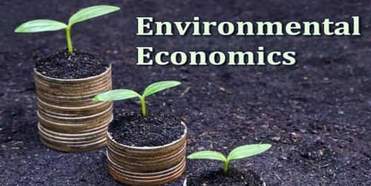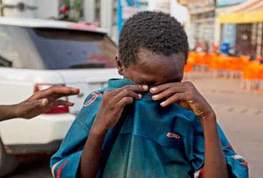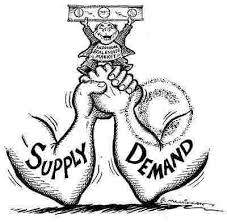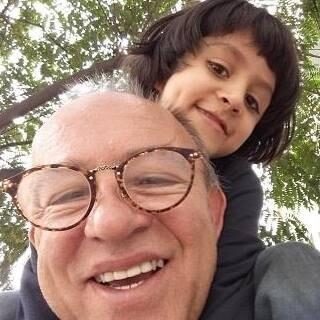- Interview
- Prices/Payment
- Standard Service US$199.00
- VIP/Rush Service US$299.00
- Masters Personal Statement Help
- Dr. Robert Edinger
- Autobiographical
- Cover Letter
- Disadvantaged Status
- Diversity
- Dual Degrees
- Employment
- Fellowship
- Internship
- Letter of Appeal
- Letter of Recommendation
- Scholarship
- Summer School
- Undergraduate
- Mission/Service
- Privacy/Guarantee
drrobertedinger@gmail.com
Free Consults!
Dr. Robert Edinger Admission Writer and Editor
Samples of My Work in Economics & Closely Related Areas
- MSC Politics, Economics & Philosophy, Brazil
- Master’s Economics Canada, Ethiopian
- Masters International and Development Economics
- PHD Economics, Egypt, Middle East
- PHD Economics, Latin America & China
- PHD Economics, Financial, International, Labor
- Master’s Degree in Economics, Saudi Arabian
- Master’s Degree in Applied Economics
- Master’s Degree, Financial Economics
- Master's Degree Economics , Indian Applicant
- MA, International Political Economy, African
- MPhil Economics, Microeconomics, India
Master’s Degree in Economics (Development Studies), African Applicant
 My wife and I are both from Burkina Faso where we grew up and received most of our education. She is currently working towards the completion of her PHD at the University of XXXX and I hope to begin my graduate education in North America next year, Fall of 2018. We plan on spending as much time as possible together – hopefully in Montreal, our dream city. XXXX University in Montreal is my first choice for graduate school for a variety of reasons in addition to its location, however, especially your profound respect and admiration for diversity and the highly interdisciplinary interests of your faculty in the Developing World, particularly Francophone Africa. My wife is hard at work looking for a suitable temporary professional position in Montreal as well. Since French is the national language of Burkina Faso, we feel especially at home in French-speaking culture and society.
My wife and I are both from Burkina Faso where we grew up and received most of our education. She is currently working towards the completion of her PHD at the University of XXXX and I hope to begin my graduate education in North America next year, Fall of 2018. We plan on spending as much time as possible together – hopefully in Montreal, our dream city. XXXX University in Montreal is my first choice for graduate school for a variety of reasons in addition to its location, however, especially your profound respect and admiration for diversity and the highly interdisciplinary interests of your faculty in the Developing World, particularly Francophone Africa. My wife is hard at work looking for a suitable temporary professional position in Montreal as well. Since French is the national language of Burkina Faso, we feel especially at home in French-speaking culture and society.
As a specialist in the area of economic development, I also very much appreciate Montreal as a city and an economy, a symbol of successful, sustainable development in ways that are most exemplary; serving as an excellent model for development in the Developing World generally speaking and, as I see it, Burkina Faso in particular. I very much appreciate how your highly interdisciplinary Master’s Degree Program in Economics, studying under the Development Studies Option, will enable me to receive the most thoroughgoing immersion experience possible in the critical social, political, economic and environmental challenges facing the Developing World – especially francophone Africa. I look forward to a long lifetime translating the theoretical knowledge that I will learn into hands-on practice so that I will be able to make my fullest contribution to society as an agent of progressive change.
Since completing my degree in Business Law, I have been serving with an organization devoted to the stimulation and management of private-sector businesses – which I see as especially important to the overall development of the country. My ultimate goal is to contribute to creating sustainable small and medium-size enterprises (SMEs), capable of generating jobs and thereby alleviating poverty, especially among vulnerable communities. Earning my Master’s Degree in your program will provide me with the theoretical background, knowledge base, and tool kit that I will need to achieve this goal. The diversity of the faculty as well as the student body at XXXX is also ideal. It would be a special honor for me to study under Dr. XXXX who specializes on development economics in francophone West Africa.
Upon completion of my Masters, I intend to return to work with my current employer, taking on additional responsibilities, share my learning experience in Canada with my colleagues and associates, building us up and making us more effective as an organization – with a central focus on innovation. As a development professional in Burkina Faso, I will be using my skills to help enterprises mitigate the challenges they face. My current experience, supervising a team of 12 agents working in 10 different provinces of Burkina Faso, creating thousands of new private enterprises over the course of the last several years, will provide me with helpful real-world experiences to share in discussions concerning issues faced in Africa. I have a vast professional network that will help me to make a major impact in the development of the private sector over decades to come. Francophone West Africa has very few development experts trained in Canada with great passion for the advancement of the private sector. I thank you for considering my application to XXXX.ant to stay there permanently.
Most Recently Edited Statement Samples
- MA Educational Counseling, Multiculturalism
- MS Computer Science, Info Security, Saudi
- Real Estate Master’s, Tibetan, New York City
- Master’s in Real Estate Development, Chinese
- General Practice Dental Residency, GPR, Egyptian
- HRM Human Resources Masters, Chinese Woman
- Real Estate Development, Employment Position
- International Affairs Masters, Diplomacy, Africa
- Masters Communications Management, Taiwanese
- Letter of Appeal, International Dentist Program
- Masters Material Science, Pollution, Chinese
- Masters Food Science, Development, African
- Endeavour Scholarship Australia, Filipina
- MBA, Accounting Background, Saudi Woman
- MSC Clinical Microbiology, London, Turkish
- Master's Degree Occupational Therapy, Pakistani
- MA Global Communication, Marketing, Latina
- MS in Business Analytics, Mgmt., Programming
- Masters, Information Systems, Chinese
- MS Project Management, Oil & Gas, Iranian
- PHD Environmental Sciences, Canada
- OT Masters, African-American, Haitian
- PHD IT, Pathologist Assistant Faculty
- MA Counseling, Alcoholic Father, Suicide Mother
- MA Political Science, European, African Woman
Premium Statement Service by Dr. Robert Edinger
With maximum creativity, research, priority attention, and as many revisions as needed!
Dr Robert Edinger with Son David
drrobertedinger@gmail.com
1-812-675-4937
Sample 1st Paragraph for the MSc Degree in Environmental Economics, Indian, NGO Experience
 I am a young woman from India who is most passionate about both economic development and the importance of preserving our environment. For some time now, my energy as a student and a professional have been geared towards the study of green growth, both as an undergraduate student finishing my degree in Economics at the University of Dehli, and particularly since I graduated in 2011. I have experience working for a pro-environment NGO in the area of waste disposal and I also completed an internship with India’s planning commission in the area of forest management.
I am a young woman from India who is most passionate about both economic development and the importance of preserving our environment. For some time now, my energy as a student and a professional have been geared towards the study of green growth, both as an undergraduate student finishing my degree in Economics at the University of Dehli, and particularly since I graduated in 2011. I have experience working for a pro-environment NGO in the area of waste disposal and I also completed an internship with India’s planning commission in the area of forest management.
Fellowship Application Material for Graduate Study in Economics, African Applicant
 What public problem are you working to solve and why? (Maximum of 1,500 characters, about 225 words)
What public problem are you working to solve and why? (Maximum of 1,500 characters, about 225 words)
I have been heavily engaged in the struggle against drug addiction in Burkina Faso for the past several years. Neighborhood parks and schools have become recruiting grounds for child and teenage drug dealers seeking to cultivate new generations of addicts. While the common perception is that his is something that happens to boys, increasingly, many girls are involved as well. Our fight against the scourge of drug addiction, with its myriad, negative social consequences, is especially urgent given the fact that the population of Burkina Faso is young, with nearly half of the population younger than 20 years old. We depend on this generation for economic development. Of course, winning this battle will require the full inclusion of young people and motivating them to high levels of involvement and engagement. For some time now, I have been in contact and networking with numerous educational, financial and youth institutions, national as well as global, in the struggle to reach the widest audience possible, girls as well as boys. Much of our effort is geared towards the empowerment of parents with regard to this issue. Parents need the support of our business sector as well as our government and civic institutions. I seek a lifetime of engagement with this issue which I have identified as of especially paramount importance to the sustainability of economic development in Burkina Faso.
How are you attempting to solve the problem? (Maximum of 1,500 characters, about 225 words)
Along with my colleagues, I have labored to create youth associations in neighborhoods across my city to raise awareness concerning the consequences of drug abuse – especially in my own neighborhood. As a young leader in my community, I use innovative participatory strategies to get young people - including drug addicts and their families - more interested in working to tackle this burning issue of mammoth proportions. I bring them together to brainstorm on how we can better address the problem of drug addiction together, coordinating our efforts. Some of the members of this association are drug addicts but this association welcomes people without any distinction. One of their suggestions has been to organize a fundraiser for a three-day trade fair geared towards young people. An awareness campaign was organized during this fair and parents and youth were invited to attend so as to become more informed about the consequences of drugs and how to support drug addicts. To make campaigns sustainable, I encourage teenagers to organize themselves and invite former addicts to share experiences with their groups. We work with local groups fighting drug use by training teenagers to also inform their classmates about this terrible danger and the potential that it has to destroy their lives.
How does your work illustrate or expand the definition of what it means to be an active citizen or member of your community? (Maximum of 1,200 characters, about 175 words) *
Active citizens care about and tackle crucial issues in their community. My work illustrates the way that this activism is most effectively generated by awareness campaigns at the neighborhood level. My strategy is to teach by example, using my own track record as a highly motivated member of the community to inspire a similar activism in others. My initiatives have fully involved people from diverse social groups where all are welcome despite gender, age, ethnicity, religion or social class. The older generation is especially important in terms of funding, helping to advertise and provide technical assistance for training sessions while younger generations are indispensable for the coordination and general organization of the event. All segments of society are involved because drug abuse cannot be eradicated by only one social group. Active citizenship requires the involvement of all or nearly all community actors. Finally, active citizenship requires an evaluation of the impact of activities designed and implemented to improve performance. At the end of the campaign, we evaluate the activity and suggestions are made for additional steps to be taken.
What concrete impact – however you define impact – is your work having? (Maximum of 1,200 characters, about 175 words) *
My work has made the youth of my neighborhood, in particular, more conscious of their importance and the impact that they can have on the development of the community. During one of our campaign evaluation meetings, they explicitly recognized how their self-confidence was increasing as a result of our efforts. They never imagined that they could be able to organize such an activity with the support of their parents and local institutions. This led me to the conclusion that the major impact of our project is that young people realize that when they are drug-free, they can move mountains. I am applying for this fellowship so as to acquire the necessary tools and build the essential networks on national and global levels so as to reach the broadest audience possible and to make that audience as fully gender-inclusive as possible. Drug addiction is considered shameful in African society. This is especially true when females are involved. Thus, anti-addiction associations tend to be entirely made up of boys and men – despite the fact that Drug addiction among young women is increasing. I hope to better address this issue as a result of my graduate training.
Share an issue on which you’ve changed your mind and explain why. (Maximum of 1,200 characters, about 175 words
To develop their sense of responsibility, independence, and feeling of ownership of the project, I gave the young people engaged with me the freedom to write and submit funding proposals to potential partners. In the process, I discovered that they had asked for more money than they needed for the activity in question. We had previously agreed on a budget but some of them wanted to use the event as a way to make money. I was very disappointed and wanted to go and apologize to the partners. But I changed my mind and decided that the young people should do it themselves. I explained to them that honesty is key to building trust in their community –which is already disenchanted by their drug addictions. I asked them to go back to all the partners where they had already submitted the proposals and to take them back. Then, they were directed to draft new proposals for submission. They did it and we got funded in less than a week because donors were impressed by our transparency as well as our initiative.
How have you brought others to the cause in order to create change? (Maximum of 1,200 characters, about 175 words) *
I had a frank conversation with the teenagers at my house. After I listened to their explanations, I made it clear to them that for our partnership to work, we all needed to be honest as well as active citizens. I outlined very strong arguments concerning the consequences of overstating their budget. One of the consequences could be to lose credibility (which some of them had already lost since they got involved in drug abuse) and the support of their families and institutions. I clarified the goal of the project which is to promote social change and not simply collect money. They told me that they did not realize the consequences of their acts and that this would never happen again. Indeed, by the end of the activities, accounting records shows no missing money. Benefits were put back into the account of the association to organize future activities. We were all proud of our major accomplishment, which is hopefully just the beginning of future, life-changing opportunities for the young people in my neighborhood.
Search by Discipline, Degree, Ethnicity, or Country of Origin
How Economics Forgot about Women
Statements of Excellence for Admission to Graduate School in Economics

The Heroines of Economics
Edith Abbott (1876-1957)
Edith Abbott was born in Nebraska in 1876. She earned a Ph.D. in Economics from the University of Chicago, which was awarded in 1905, and then worked at the London School of Economics.
In the 1920s, she became dean of the University of Chicago’s School of Social Service Administration and during the subsequent decade, had a hand in drafting the US Social Security Act of 1935—one of the first unified systems of social welfare in the US. This work was done under the supervision of Frances Perkins, the US’ longest-serving labor secretary (and the first woman to hold this position).
Anna Schwartz (1915-2012)
Anna Schwartz is the lesser-known coauthor of what is probably the single most influential book on monetary economics written since the second world war.
In the early sixties, Schwartz and future Nobel Prize-winning economist Milton Friedman published “A Monetary History of the United States, 1867–1960.”
Schwartz did not share the Nobel Prize with Friedman. The awarding committee said that the book was “one of Friedman’s most profound and also most distinguished achievements.” How sad.
However, the focus on the effect of monetary policy on the economy’s business cycles that Friedman and Schwartz took went far beyond the world of academia: governments around the world made dramatic changes, focusing far more on monetary policy to manage the ebbs and flows of economic activity as a result of the work she and Friedman did together.
Deirdre McCloskey (1942)
Deirdre McCloskey is perhaps the single most prominent economic historians in the world.
McCloskey´s writing on the beginnings of industrialization in the UK has not only become a major part of the academic debate, but a popular book in its own right.
In 2014, she became one of Professor Thomas Piketty’s most prominent critics. She has had a significant economic influence on both conservatives and libertarians during her career.
Dambisa Moyo (1969)
After completing a degree in chemistry and an MBA, Dambisa Moyo received a Ph.D. in economics from Oxford University. She worked at Goldman Sachs, and currently sits on Barclays’ Board.
Moyo is a prominent critic of development aid for low-income economies and her “Dead Aid: Why Aid Is Not Working and How There Is a Better Way for Africa”, is one of the best-selling works on the subject of development aid ever published.
In 2013, Moyo received the Friedrich Hayek Institute’s lifetime achievement award for her work in this field.
Carmen Reinhart (1955)
Carmen Reinhart is one of the most influential female macroeconomists alive. After her education at Colombia University, she worked as chief economist at Bear Sterns, at the International Monetary Fund, and the Harvard Kennedy School.
As one of the coauthors of “This Time Is Different: Eight Centuries of Financial Folly” and “Growth in a Time of Debt,” Reinhart became one of the standard-bearers of government austerity after the financial crisis and continues to do great work in this area.
Harriet Martineau (1802-1876)
Martineau is the earliest writer on the list. She publishing books on the subject of taxation and political economy in the 1830s and has been described as one of “Adam Smith’s daughters”.
She later travelled through the US and wrote “Society in America,” a sociological account of the country.
Martineau’s works were not minor additions to the subject. According to John Vint at Manchester Metropolitan University, her work on political economy was so popular that she outsold Charles Dickens at one point in time.
Joan Robinson (1903-1983)
Joan Robinson is one of the most influential of Keynes’ students and followers. Her major works followed from Keynes’ “General Theory,” and as a Cambridge economist, she became the first female honorary fellow of King’s College.
Even before that time, Robinson developed the concept of monopsony, a reversed monopoly, where instead of having one seller and many buyers, there is one buyer and many sellers. In labor economics, this is an extremely important idea—when the single buyer is purchasing labor, and there are many people wishing to sell their labor, the theory suggests that they have a great effect on wages. This is one of the major arguments for minimum wages.
Robinson was one of the most prominent founders of the post-Keynesian school of economic thought.
Janet Yellen (1946)
Janet Yellen is not only one of the most heavily-cited female research economists in the world, but holds what may well be the most powerful economic-policymaking position in the world, as chair of the US Federal Reserve.
Prior to heading the organization, Yellen worked as a professor of economics and was vice chair of the Fed from 2010. She was also the first chair of the President’s Council of Economic Advisors under Bill Clinton—a position that she certainly deserved.
Mary Paley Marshall (1850-1944)
Mary Paley Marshall was one of the first five women permitted to study at Cambridge University. She became the first female lecturer in economics at the university in the year 1875, a full 43 years before women were able to vote in the United Kingdom.
Paly Marshall authored a book called “The Economics of Industry” with her husband, Alfred Marshall, who became of the most influential economists in history.
According to James and Julianne Cicarelli, who wrote a book named “Distinguished Women Economists,” she was listed by John Maynard Keynes in his “Essays on Biography.”
The Cicarellis said that: “Keynes held her in the highest regard and considered her an intellectual and thinker every bit as significant to the historical development of economics as her husband or any of the other economist about whom he wrote.”
Christina Romer (1958)
Romer was the second woman to become chair of the US President’s Council of Economic Advisors. She did so at a crucial time for the US. As President Barack Obama came into office at the beginning of 2009, the economy was in a deep depression and needed some real TLC.
Romer´s most famous research prior to that position concerned the Great Depression and the economy´s subsequent recovery, which Romer attributed in large part to monetary policy changes, playing down the role of fiscal policy.
Romer’s later work, which she completed alongside her husband David Romer, concentrated on the effect of tax changes on the US economy. Romer is an advocate of replacing central-bank inflation targeting with nominal gross-domestic-product targets.
Rosa Luxemburg (1871-1919)
Luxemburg is well-known as a revolutionary who was executed by German government-supported militiamen in the aftermath of the failed Spartacist Uprising in 1919.
But Luxemburg also made a significant mark on Marxist economic thought—just before the onset of the first world war, Luxemburg wrote “The Accumulation of Capital: A Contribution to an Economic Explanation of Imperialism.”
She made such a significant mark on Marxist economic thought to the extent that Socialist Workers Party founder Tony Cliff referred to it as “one of the most, if not the most, important and original contributions to Marxian economic doctrine since Capital.”
Though Joan Robinson was a major critic of Luxemburg’s analysis, she referred to the work as “more prescience than any orthodox contemporary could claim.”
Millicent Fawcett (1847-1929)
Milicent Fawcett is mostly known as a feminist and campaigner for women’s rights. She´s also the name behind Britain’s Fawcett Society, and continues that work today.
She wrote “Political Economy for Beginners” in 1870, and was committed to the political rather than scientific application of economics that developed in the coming decades. The book was still published 40 years later, when the 10th edition was released—which is a testament to its great worth.
Fawcett also blended her campaigning work and her economics. She proposed the “crowding hypothesis” that women are driven by informal and formal institutions into lower-paid work.
Because all women are driven toward this subset of jobs, Fawcett hypothecated that the oversupply of labor kept their wages down. The thesis is still discussed by feminist and labor economists to this day.
Elinor Ostrom (1933-2012)
This impressive woman held the only Nobel Prize in economics ever awarded to a woman. She decided not to pursue a Ph.D. in economics, and completed one in political science instead.
Her work on the formal and informal political institutions that influence an economy had enormous influence on a discipline that had become more scientific and mathematical, bringing back some of the more politically-focused work that was more common 100 years ago.
Ostrom is associated with New Institutional Economics, and now continues to work in this field in a more limited capacity.


